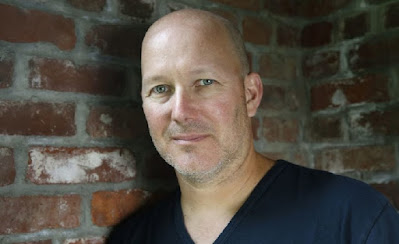Happy 55th Birthday, Bill Morrison! Born today 1965, this American artist and New York-based filmmaker's works often combine rare archival material set to contemporary music, and have been screened in theaters, cinemas, museums, galleries, and concert halls around the world.
Born in Chicago, Illinois, Morrison, years later, attended two private universities. These were Reed College in Portland, Oregon from 1983 to 1985, and graduated with a BFA from the Cooper Union School of Art in New York City, New York in 1989.
In the early 2000s, Morrison directed the 2002 American black and white collage documentary film 'Decasia: The State of Decay'.
Upon release, it had been hailed by American film critic, journalist, author and academic J. Hoberman as "the most widely praised American avant-garde film of the fin de siècle." (This is a French term meaning "end of century").
American film director Errol Morris ('The Thin Blue Line', 'Fast, Cheap & Out of Control') reportedly commented while viewing 'Decasia' that "This may be the greatest movie ever made".
'Decasia' was originally commissioned by the Basel Sinfonietta to be shown on three screens surrounding the audience, behind which fifty-five musicians performed American composer Michael Gordon's score. He is the co-founder of the Bang on a Can music collective and festival.
The following year, Morrison had received the Alpert Awards in the Arts, a grant from the National Endowment for the Arts, Creative Capital, and the Foundation for Contemporary Arts Grants to Artists award in 2003.
In 2013, 'Decasia' was included in the annual selection of twenty-five motion pictures for preservation selected in the United States National Film Registry by the Library of Congress to its National Film Registry as being "culturally, historically, or aesthetically significant". This was for Morrison's feature-length collaboration with Gordon.
From October 2014 – March 2015, Morrison had a mid-career retrospective at New York's Museum of Modern Art. He is currently a fellow of the John Simon Guggenheim Memorial Foundation.
Morrison's collected works through 2014 were released as a five-disc box set from Icarus Films in September 2014, and a three-disc Blu-ray box set from the British Film Institute in May 2015.
One year later, Morrison edited, wrote, co-produced and directed the film of which he is best known. This was the 2016 American black and white/color documentary/history film 'Dawson City'.
The full (and exhaustive) title of the film is 'Dawson City: Frozen Time: The Buried History of a Gold Rush Town Found on Nitrate Film'.
The documentary is a complex, poetic, multi-stranded tale of how in 1978 Canada, a bulldozer, working its way through a parking lot, dug up a fortuitous discovery in Dawson City. These were a long-lost horde of film cans; five hundred and thirty-three nitrate film stock prints from the early 1900s.
Located just south of the Arctic Circle, Dawson City was settled in 1896 and became the center of the Canadian Gold Rush that brought one hundred thousand prospectors to the area.
It was also the final stop for a distribution chain that sent prints and newsreels to the Yukon. The films were seldom, if ever returned.
These works had been sealed within a swimming pool. The unearthed reels tell the story of Dawson City, the dawn of 20th century America, and Hollywood in the silent era.
'Dawson City' is a meditation on cinema's past of which pieces together the bizarre true history of a long-lost collection of over five hundred nitrate film prints of the early 20th century.
In the documentary, Morrison draws on these permafrost-protected, rare silent films and newsreels, pairing them with archival footage, interviews, and historical photographs.
The telling of this documentary reveals the fortunes of the gold-rush town and the development of early cinema.
It depicts the unique history of this Canadian Gold Rush town by chronicling the life cycle of a singular film collection through its exile, burial, rediscovery, and salvation.
Dawson City' later screened in the Orizzonti Competition section at the 73rd Venice International Film Festival in early September of that same year.
While there, it became the Winner of the Most Innovative Documentary at the Critic's Choice Documentary Awards.
The film also had its North American premiere at the 54th New York Film Festival. This occurred at the Film Society of Lincoln Center.
In 2017, the film was released by Kino Lorber, and was named the Best Documentary of that year by the Boston Society of Film Critics.
It was also awarded a Critics' Choice Award for Most Innovative Documentary, an International Documentary Association (IDA) Creative Recognition Award for Best Editing and was included on over 100 critics lists of the best films of 2017.
With an enigmatic score by Sigur Rós collaborator and composer Alex Somers, film review aggregator Rotten Tomatoes reports that one hundred percent of critics gave the film a positive review.
Morrison has collaborated with some of the most influential composers and performers of our time.
These include Philip Glass, Jóhann Jóhannsson, Michael Gordon, John Adams, Gavin Bryars, Bill Frisell, Henryk Górecki, Kronos Quartet, David Lang, Steve Reich, & Julia Wolfe among many others.
Morrison has occasionally acted in other directors' films. Most notably this includes two films by American film director, screenwriter, and actor Andrew Bujalski.
These are the 2005 American black and white independent comedy/drama film 'Mutual Appreciation' and its quasi-sequel, the eight-minute 2007 American black and white video short film 'Peoples House'.
Morrison has been active from 1990–present.
#borntodirect
@decasia
@BillMorrisonFilm
@dcft_thefilm
@BFI
@libraryofcongress
@sigurros
@Criterion
@Kanopy
@MuseumofModernArt
@kinolorberinc
@IcarusFilms
@NYFilmFest
@lincolncenterNYC
@Labiennaledivenezia
@Amazon
@Vimeo

No comments:
Post a Comment